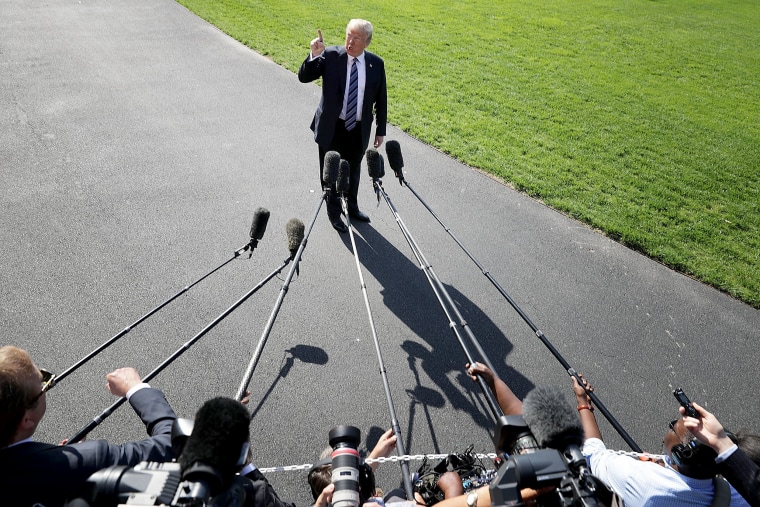As the Environmental Protection Agency (EPA) convened government officials, chemical industry representatives, and environmental groups last week to discuss toxic chemicals found in some drinking water systems nationwide, one important stakeholder was missing: the press.
While some journalists were allowed brief access to the first day of the summit to hear remarks from EPA agency head Scott Pruitt, other reporters from select news outlets were initially turned away, and in one case, “grabbed by the shoulders and shoved out” of the building. Following outcry from news organizations and the public, the EPA opened the summit’s afternoon sessions to all journalists — but the very next day, completely closed the summit to all members of the media. Instead of being able to cover what was taking place at the summit, journalists were instead forced to report on the EPA’s refusal to allow them to observe it. And now, less than two weeks later, the news cycle has diverted coverage to other issues.
Journalists attend meetings like this one to act as the eyes and ears of the public, reporting on what government officials are doing and why. So when the press is shut out, it’s the public that loses. In this case, the public was denied information about how the EPA is addressing an important public health issue — contaminated drinking water — that affects communities across the country.
Journalists attend meetings like this one to act as the eyes and ears of the public, reporting on what government officials are doing and why.
It should also go without saying that no journalist should be forcibly removed from a government event or building for asking questions that the public wants answered. However, the incident at the EPA is just the latest in a string of recent instances where journalists have been denied access.
In May of last year, a journalist was pinned against a wall and forcibly removed from the Federal Communications Commission’s headquarters after attempting to ask FCC Commissioner Michael O'Rielly a question as he was leaving a press conference. Just months later, another reporter was removed from an event in Iowa — that was open to the press — where Pruitt was speaking. And Public News Service radio journalist Dan Heyman was not only removed from the West Virginia Capitol last year after attempting to interview then-Secretary of Health and Human Services Tom Price — he was arrested for it, jailed for several hours, and charged with a misdemeanor. (The charge was later dropped, but only after Heyman obtained a lawyer to fight the charge over the course of the four months that followed.)
All of these incidents have taken place against a backdrop of dangerous rhetoric, often emanating from the highest levels of government but other times from state and local officials, seeking to discredit journalists and their work.
The attacks on journalists haven’t just been verbal — they’ve been physical, and in more than one instance, committed by elected officials. Just last year, Montana congressional candidate Greg Gianforte “body slammed” Guardian reporter Ben Jacobs when he tried to interview him, but was nevertheless elected the next day. In Alaska, Republican state Sen. David Wilson (R-Wasilla) slapped Alaska Dispatch News reporter Nathaniel Herz across the face on the steps of the state capitol building in Juneau. It is incidents like these that drove the Inter American Press Association, an organization that typically works in hotspots across the Americas where the rights of journalists are under attack, to conduct its first-ever mission to the U.S. earlier this year to examine the undermining of press freedom in this country.
The press and public’s ability to scrutinize those who are charged with ensuring our water is safe to drink, our air is safe to breathe and the products we consume aren’t laden with harmful chemicals helps hold those with such power accountable.
Barring select reporters from covering government activities and forcibly removing them, or in some cases even attacking them, is an affront to transparency.
The information journalists report empowers the public with the information it needs to ensure their government officials are making decisions in the best interests of the communities they serve. Barring select reporters from covering government activities and forcibly removing them, or in some cases even attacking them when they raise questions about why they and the public are being kept in the dark, is an affront to transparency. The public deserves to know what its government officials are doing, and why.
Public officials who seek to delegitimize the role of the press in our democracy would do well to remember that transparency and openness is what fosters confidence and trust in our government and its actions — not conducting the public’s business behind closed doors.
Bruce Brown is executive director of the Reporters Committee for Freedom of the Press, which provides pro bono legal support and resources to advance First Amendment freedoms and protect the newsgathering rights of journalists.
